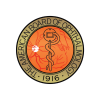The oral examination is a case-based assessment. ABO examination cases, also known as Patient Management Problems (PMPs), are clinical scenarios or prompts designed to provide candidates with the opportunity to demonstrate their knowledge, judgment, and decision-making skills in ophthalmic patient care.
Topic Areas
Because the Board issues certification in ophthalmology (not in the various subspecialties of ophthalmic practice), the topic areas on the oral examination reflect the breadth of the knowledge base for the entire specialty. Each candidate’s oral examination will provide an opportunity to address seven cases from each of the following six topic areas for a total of 42 cases:
- Anterior Segment of the Eye
- Optics, Visual Physiology, and Correction of Refractive Errors
- Pediatric Ophthalmology and Strabismus
- External Eye and Adnexa
- Neuro-Ophthalmology and Orbit
- Posterior Segment of the Eye
Source Material
Content for the oral examination is not limited to a single publication or curriculum. As an independent standard-setting and assessment organization, the ABO neither requires nor endorses the purchase of particular study guides, tools, or texts. While reference material may be found in the American Academy of Ophthalmology’s BCSC Basic and Clinical Science Course book series, all examination cases are uniquely developed by board-certified subject matter experts who draw from many sources, including actual practice experience. Some cases on the examination will be similar to those seen in daily practice, while other cases may ask candidates to recall unusual or atypical patient scenarios encountered during residency or in peer-reviewed literature. All cases are thoroughly vetted by diverse teams of subject matter experts from varying practice settings across the country and contain aspects of patient care that have been deemed essential for every newly graduated ophthalmologist to know.
The ABO publishes a freely available consensus-based content outline to describe the spectrum of oral examination content. The Board recommends that candidates look to the content outline as a starting point for building a personalized program of review; however, this document is not intended to serve as a comprehensive study guide.
Need more help with this?
Don’t hesitate to contact us here.



